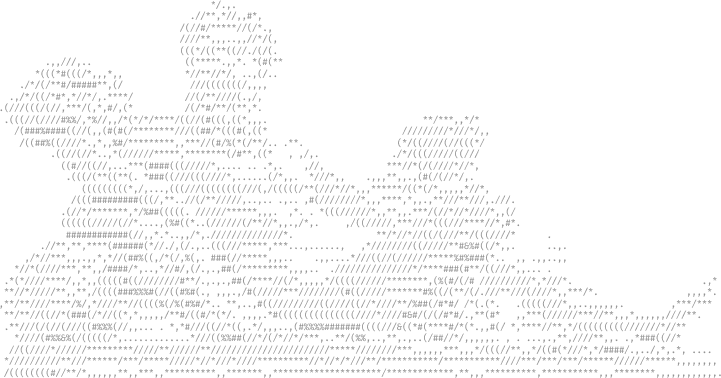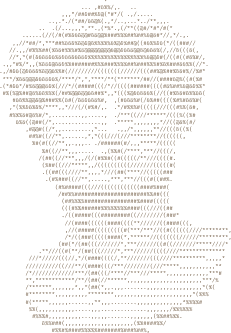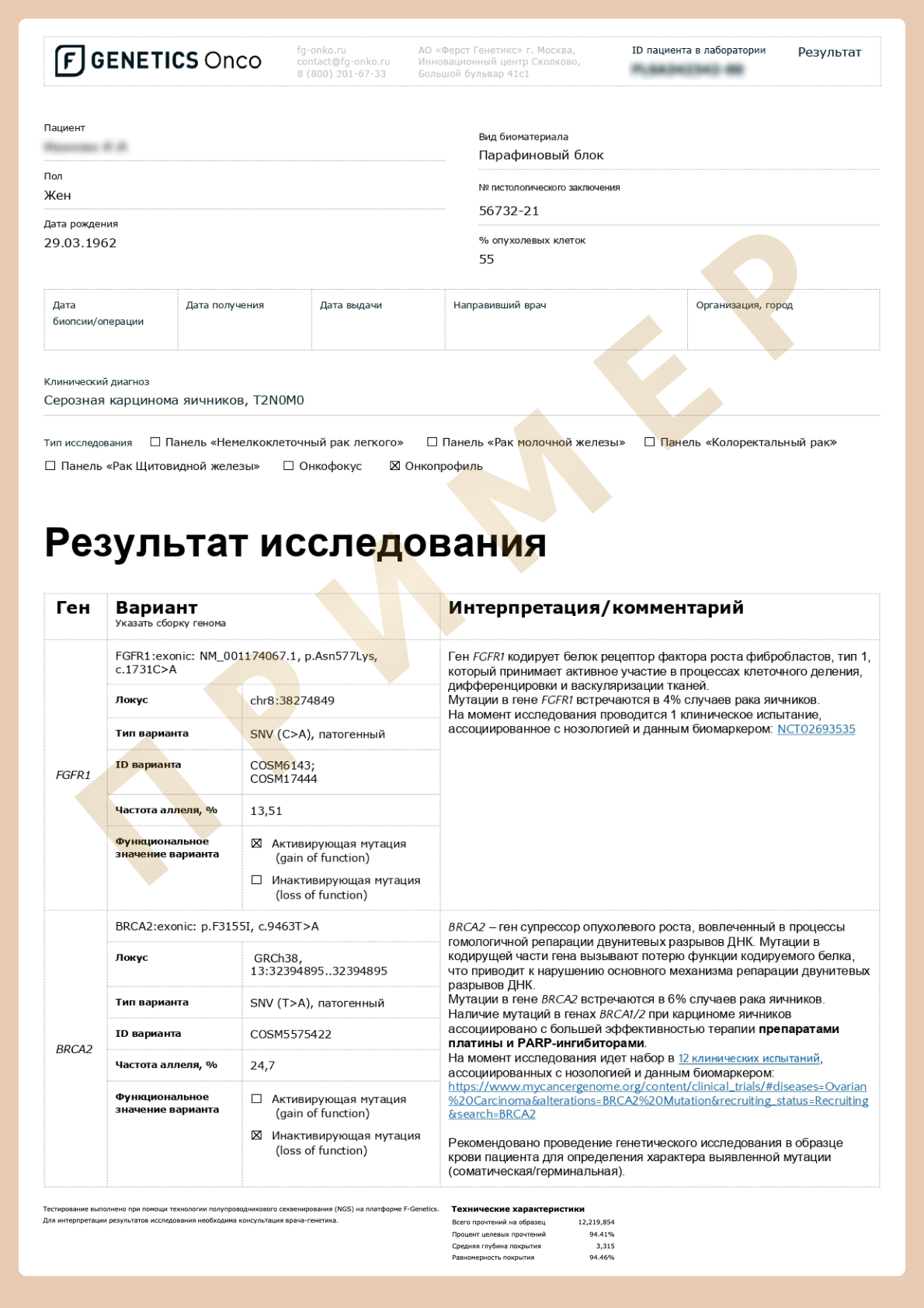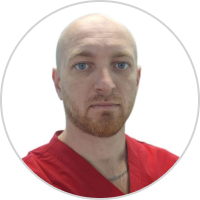

Oncoprofile
Oncoprofile is an NGS-based assay that includes a panel of genes frequently involved in carcinogenesis.
Unlike Oncofocus, Oncoprofile includes an expanded spectrum of genes whose abnormalities are responsible for both «adult» and juvenile forms of cancer, as well as identifying genetic variants associated with hereditary cancer syndromes such as:
- Hereditary breast and ovarian cancer syndrome
- Li-Fraumeni syndrome
- Ataxia telangiectasia (Louis-Bar syndrome)
- Fanconi anemia
- Lynch syndrome
- Peutz-Jeghers syndrome
- PTEN-associated hamartoma tumor syndrome (Cowden syndrome)
- Neurofibromatosis types I and II
- Familial atypical nevi and melanoma syndrome/Dysplastic nevus syndrome/Melanoma-astrocytoma syndrome
- Hereditary retinoblastoma
- Tuberous sclerosis (Burneville’s disease)
Oncoprofile assay contains 161 genes
- Hotspots (SNV/InDels)
- Full coding sequence of genes
- copy number variations (CNV)
- inter and intra chromosomal rearrangements (chimeric gene variants)

Indications for the Oncoprofile
The Oncoprofile test is indicated in patients with a confirmed diagnosis of cancer and when one of the above syndromes is suspected for:
- Tumor molecular profiling
- Therapy selection
- Evaluation of unfavorable prognosis
- Therapy monitoring and correction if the cancer recurrence occurs
- Detection of several hereditary cancer syndromes (*The confirmation test in the patient’s blood sample is required if a pathogenic genetic variant is found in the tumor)
Accurate and on-time cancer diagnostics and the «right» personalized therapy selection are crucial for cancer patients and are a primary direction for national oncology.

NGS can simultaneously read
hundreds of millions of short DNA sequences
all types of mutations, including structural rearrangements, which distinguishes it favorably from PCR analysis and sequencing by Sanger
NGS Data Processing
makes it possible to find differences in the tumor DNA sequence from the reference genomic sequence
The revealed differences are called nucleotide sequence variants or:
Nucleotide variants
- germinal (congenital — pathogenic, or polymorphisms)
- tumor-specific somatic mutations
How exactly does Next Generation Sequencing (NGS) work?
NGS can simultaneously read hundreds of millions of short sequences of DNA and detect all types of mutations, including

Full-length genes

Hotspots (SNV/InDels)

Copy number variations (CNV)

Chromosomal aberrations (gene fusions)
«These „„reads““ contain a large amount of information about the genetic sequence. The following bioinformatic data analysis finds differences between the tumor DNA sequence and the reference genomic („„golden standard““). NGS data analysis is time-consuming and requires specific software and various bioinformatics algorithms.»
The massive list of detected variants is then «interpreted» by comparing the results with databases that list known or newly seen variants associated with various cancers. Interpretation and sequencing are complex and time-consuming because it involves the work of many specialists to determine the clinical and therapeutic significance of each detected variant.
Advantages
- High sensitivity and specificity of the method
- Fast turnaround time of the test
- Simultaneous detection of all types of mutations, including structural rearrangements
- Minimum requirements for sample quantity and quality
- Shorter testing times
How to request the Oncoprofile test?
Download and fill out the informed consent form
A courier will collect histological material and take it to the laboratory free of charge.
First Genetics Laboratory
Specialists
Years of experience in genetics, laboratory diagnostics and bioinformatics
Confidentiality
All data is strictly confidential and cannot be passed on to third parties
Time frame
Results ready in a short time
Надежность
Особый контроль на каждом этапе проведения исследования
Security
Free delivery of biomaterial across Russia
Charities
Email info@f-genetics.com for information


